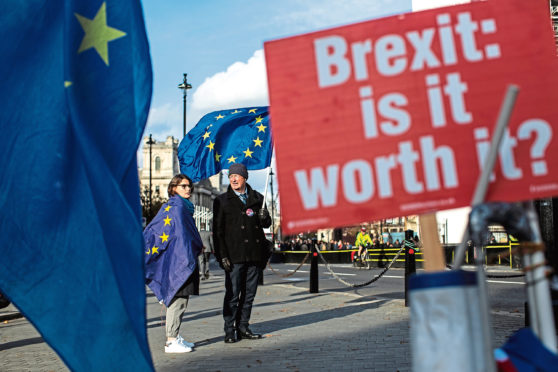Boris Johnson’s Brexit deal will arrive in the House of Commons this morning for what has been dubbed “Super Saturday”.
But what will actually happen and what will it mean?
Parliament will sit from 9.30am and the Lords will sit from 11am. The first order of business will be a statement from the prime minister to update the House after the EU Council summit.
After Mr Johnson’s statement, the government is expected to move its motion seeking MPs’ approval for a Brexit deal.
MPs have been able to table amendments since Thursday night, and Speaker John Bercow can select as many amendments as he wants, with votes taking place on those before the vote on the government motion.
The debate on the motion can run until any time on Saturday, but it is widely believed the sitting will have concluded at around 3pm.
Will MPs vote for the deal?
The vote will come down to the tightest of margins, with the DUP, SNP, Lib Dems and the majority of Labour all opposing.
Is it as simple as one yes or no vote?
No. MPs voted to change the Saturday sitting motion to allow amendments to the Government’s proposal.
The SNP has tabled an amendment to reject the deal demanding an immediate extension to the October 31 deadline and a general election.
And a former Tory MP Sir Oliver Letwin has put forward an amendment that, if accepted and approved, would withhold approval of the deal unless and until implementing legislation has passed.
What will happen if the deal passes?
If the prime minister is successful, he will then have to hope that MEPs in the European Parliament give it the same backing. The prime minister would also need to find a further majority for the European Union (Withdrawal Agreement) Bill in order to put Brexit on the statute books.
What if the deal is rejected?
If parliament does not support the deal, Mr Johnson is compelled under the Benn Act to request a further Brexit delay to the end of January.
